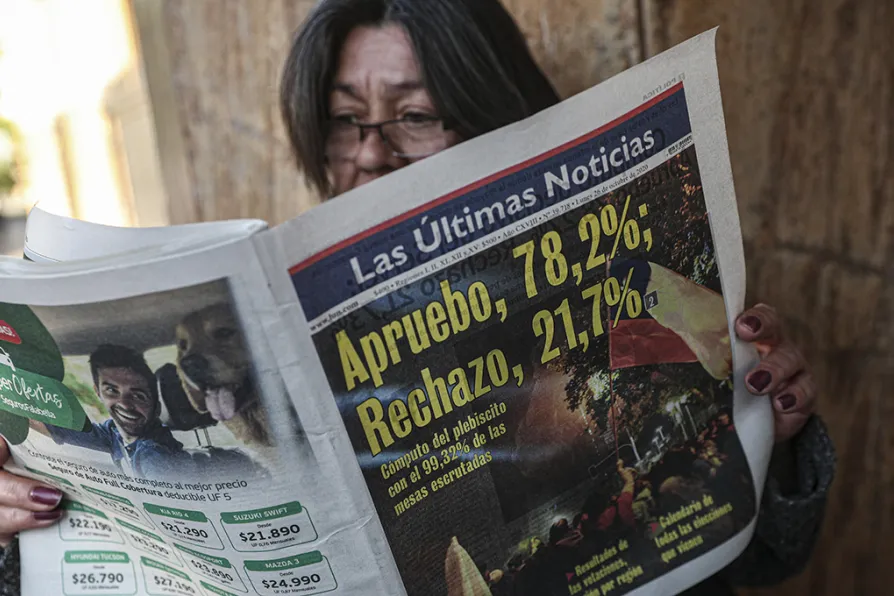Speakers in Berlin traced how Germany’s rearmament, US-led violence abroad and the repression of solidarity at home are converging in a dangerous drive toward war. BEN CHACKO reports

 A woman reads a newspaper showing the results of the previous day's referendum in favor of rewriting the nation's constitution in Santiago, Chile
A woman reads a newspaper showing the results of the previous day's referendum in favor of rewriting the nation's constitution in Santiago, Chile
FOR someone like me and the thousands of Chileans who witnessed the bloody US-backed military coup of September 11 1973 and who have lived in exile here in Britain ever since, the vote on Sunday October 25 to reject decisively Pinochet’s pro-fascist constitution is extremely gratifying.
In fact, hundreds of Chileans and their descendants voted yesterday at the Chilean consulate in London, queueing for hours to do so. Similarly, exiles voted in many European capitals and cities to which Chileans fled for their lives in the terrifying aftermath of the brutal coup which killed the constitutional socialist president of Chile, Dr Salvador Allende.
It was British Hunter Hawker aircraft flown by the traitors in Chile’s air force that bombed the presidential Moneda Palace in Santiago that tragic day.

Far-right forces are rising across Latin America and the Caribbean, armed with a common agenda of anti-communism, the culture war, and neoliberal economics, writes VIJAY PRASHAD

For the first time in years, the dominant voice within Chile’s official left comes not from neoliberal centrists but from the world of labour, writes LEONEL POBLETE CODUTTI

RON JACOBS welcomes an investigation of the murders of US leftist activists that tells the story of a solidarity movement in Chile











